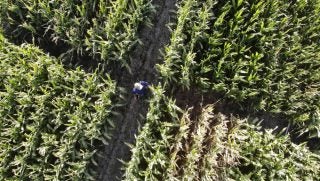For as long as I’ve worked in financial services, well-meaning farm parents (and generous grandparents) have asked me about saving for a child and/or their education. I’ll give you my professional opinion on the concept in general, and run you through some of the nuts and bolts of the options available to you to do so.
Should you save for your kids?
This may sound surprising or callous, but I think the answer is no. For lots of reasons, but the first and most important is the fact that based on statistics and my anecdotal knowledge, I would venture to guess that you haven’t sufficiently saved for yourself. I think a bigger gift to your kids is being able to actually retire without relying on them or substantially changing your lifestyle. Most farmers haven’t, and they’re planning on being supported by a farm that will also have to support the next generation (God willing). Prioritize having a reliable retirement income. You’re doing them much more good in the long run.

Second, and this one is purely a personal opinion and much less a professional one, it’s my belief that very few people have turned out to be better humans because something was given to them. Most of us are better for what we’ve earned.
So, if you fund IRAs, save some non-qualified money and maybe even some cash value life insurance, and are softer hearted than I, read on…
How do I save?
By how, I mean determining what vehicle you’ll use.
There are several available and most are overlooked. The primary tool chosen by most families is the 529 plan, which affords tax-favored growth. They come with income restrictions to limit contributions, and these limits vary by state. The proceeds have to be distributed for qualified education expenses only, and the custodian maintains control of the funds. If they’re used for any disallowed distribution, the withdrawal comes with taxes and penalties.
All of this works fine, and it’s one approach. Not every child will take a traditional post secondary route, and if you wanted to do something like buy them some cows or a welding truck or acres, taxes and penalties would be a factor. Happily, Congress recently allowed any balance remaining after education expenses are complete to be rolled into a ROTH IRA for the beneficiary. There’s also the question of whether or not the kid in question makes you really angry. It happens. And then you have some unwinding to do to access the money, and there will always be tax strings attached.

Cash value life insurance is also available to you. This is more flexible in some ways, and less flexible in others. You have to commit to a premium payment, and that payment might be high in order to make the investment profitable, but then there is a tool in place that can be a tax favored resource at various stages of your life or theirs.
You might also choose to save and invest in an account that is non-qualified (no special tax treatment) and earmark it your mind and records for a future purpose or children. You’ll pay some taxes along the way, but the money is then yours to use as you see fit, for someone else or yourself. It may also be used as supplemental farm cash that can help you in succession planning.
I generally advise against saving cash in a savings account; the opportunity cost is just too high. Growth potential is foregone.
If this is something you’ve been thinking about, I hope this provided you with some valuable insight.
Katie Ogden owns and operates Wildcatter Wealth Management LLC in Laramie, Wyoming. She’s a 2007 graduate of the University of Wyoming with a bachelor’s degree in Agriculture Business and has been working in financial services to help ranch and farm families ensure a prosperous future ever since.



